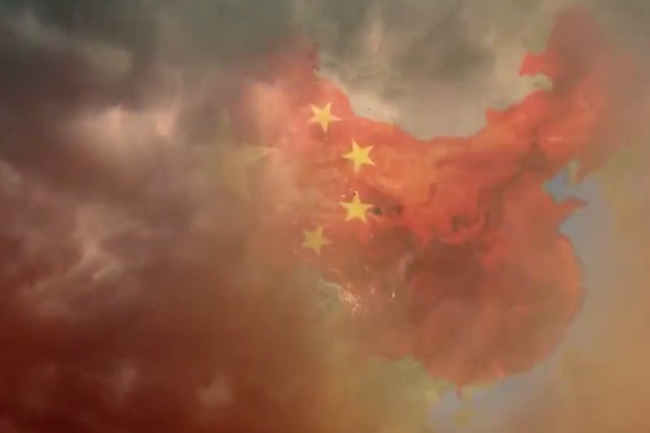White House in Damage Control Mode After Biden Says US Would ‘Respond’ to Chinese Invasion of Taiwan by Ilya Tsukanov for Sputnik News
Chinese state media has accused the US president of “spitting” “empty, reckless words” on the Taiwan issue after he implied that Washington would defend the island if it were attacked by Beijing. The People’s Republic sees Taiwan as an integral part of its territory that’s destined to reunite with the mainland one day.
The White House entered damage control mode Thursday following an interview with President Joe Biden in which he implied that the US would not back away from a hypothetical defence of Taiwan like it had in Afghanistan against the Taliban.
“There’s a fundamental difference between – between Taiwan, South Korea, NATO [and Afghanistan],” Biden said, speaking to ABC News on Thursday. “We are in a situation where they are in – entities we’ve made agreements with based on not a civil war they’re having on that island or in South Korea, but on an agreement where they have a unity government, that, in fact, is trying to keep bad guys from doin’ bad things to them.”
“We have made – kept every commitment. We made a sacred commitment to Article Five that if in fact anyone were to invade or take action against our NATO allies, we would respond. Same with Japan, same with South Korea, same with – Taiwan,” Biden stressed.
A senior Biden administration backed away from Biden’s comments, saying that the US position on Taiwan remains unchanged, and that Washington will continue to adhere to the position of “strategic ambiguity” on relations with the island.
US “policy with regard to Taiwan has not changed,” the official told Reuters, in reference to the US policy of maintaining only unofficial Washington-Taipei ties since after the US switched to recognising the People’s Republic as the one true China in 1979.
Chinese media blasted Biden over his comments, with the Global Times newspaper issuing an unsigned editorial accusing the president of “empty, reckless words” on Taiwan in the wake of US “embarrassment” in Afghanistan.
“Stuttering when speaking on the Taiwan question, Biden was like a dotard, and we doubt if he knew exactly what he was talking about. No senior officials in office in the US have made remarks as what Biden said. Biden lost face because of the Afghanistan situation…He was so eager and embarrassed to save face for himself that he talked recklessly, without thinking,” Global Times suggested.
The newspaper warned that if the Biden administration did not back away from the president’s claims “by shifting from ‘strategic ambiguity’ to making a clear statement of its defence of Taiwan, then it will have to prepare for much greater storms in the Straits.” The paper warned that China would “never accept Biden’s threat,” and pointed to the country’s “strong military capabilities and national resolution” when it comes to the Taiwan question.
The article went on to give its traditional warning to Taiwan’s Democratic Progressive Party “secessionists,” asking them not to “swim in the sputum that Biden carelessly spits out. The US won’t ‘defend’ Taiwan; what it wants to do is encourage the island to confront the mainland and use Taiwan to contain the mainland’s development,” the editorial suggested.
Taiwan Tensions
China-US tensions over Taiwan ramped up almost immediately after Biden’s inauguration in January, with Washington inviting Taipei’s de facto ambassador to the US to the ceremony for the first time in decades. Tensions have been exacerbated in the months since amid Washington’s continued ‘freedom of navigation’ deployments through the Taiwan Straits, which China has responded to by flying dozens of military aircraft through the region. Beijing has demanded that the US “abide by the one-China principle” and cease its “provocative” arms sales to Taiwan. Last week, Chinese media also warned the US not to invite Taiwan to its upcoming December “Summit for Democracy,” saying such an invitation would similarly be a violation of the One China principle.
Tensions over Taiwan were ramped up further earlier this week after Republican Senator John Cornyn tweeted, and then deleted, a tweet appearing to suggest that the US has 30,000 troops stationed on Taiwan. The Global Times demanded an immediate explanation from US and Taiwanese authorities over these figures, and warned that “if it is true” that the US has troops in Taiwan, whether it be 30,000 or any other number, the Chinese military would “immediately launch a war to eliminate and expel the US soldiers.”
Cornyn is a member of the US Senate’s select committee on intelligence, and should theoretically have access to the real troop numbers that the US has deployed around the world.
Taiwan, officially known as the Republic of China, officially severed ties with the mainland in 1949, in the immediate aftermath of the Chinese Civil War, in which Mao Zedong’s communist forces defeated the Kuomintang nationalists and the latter fled to the island. Beijing and Taipei began improving economic and informal diplomatic ties in the 1980s and 1990s, with a view to the eventual peaceful reunification along the ‘One China – Two Systems’ model applied to Hong Kong. In a twist of historic irony, the Kuomintang, which fought the communists in a brutal civil war spanning three decades, favours such reunification, while Taiwan’s current ruling party – the centre-liberal left Democratic Progressives, are opposed to such a scenario. Current Chinese President Xi Jinping has made Taiwan reunification a central plank of his government’s agenda.




